Publications
Search publications
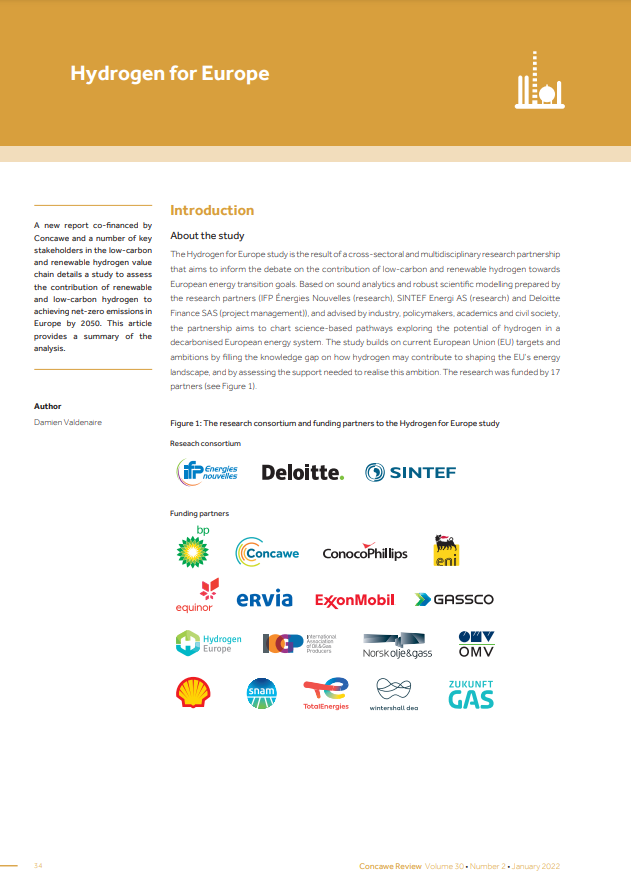
January 18, 2022
Hydrogen for Europe (Concawe Review 30.2)
A new report co-financed by Concawe and a number of key stakeholders in the low-carbon and renewable hydrogen value chain details a study to assess the contribution of renewable and low-carbon hydroge...
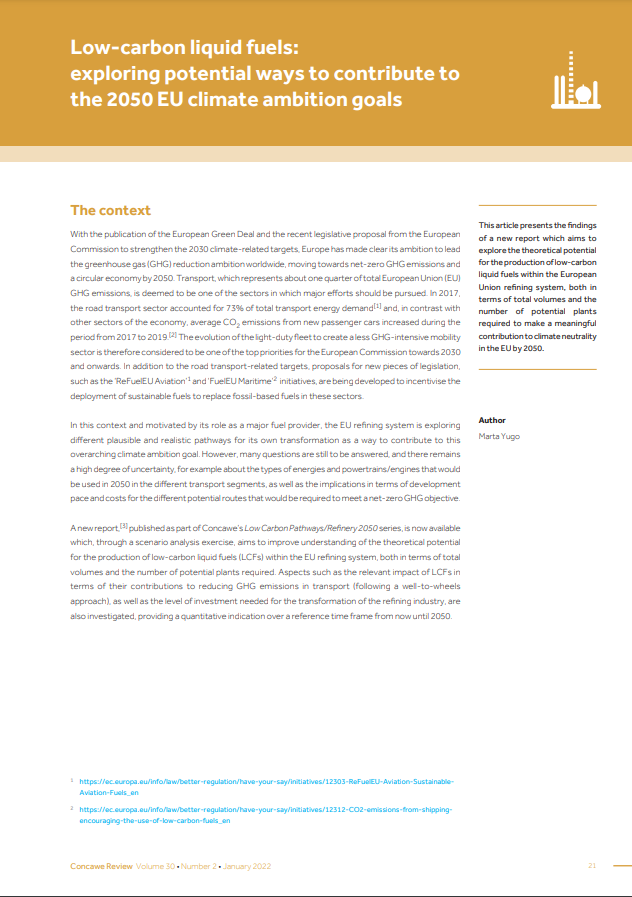
January 18, 2022
Low-carbon liquid fuels: exploring potential ways to contribute to the 2050 EU climate ambition goals (Concawe Review 30.2)
With the publication of the European Green Deal and the recent legislative proposal from the European Commission to strengthen the 2030 climate-related targets, Europe has made clear its ambition to l...
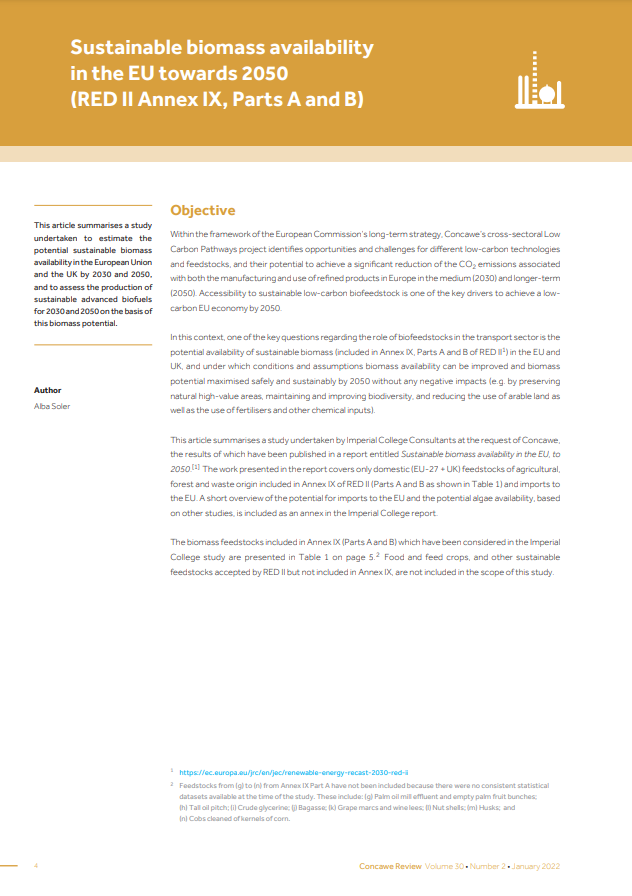
January 18, 2022
Sustainable biomass availability in the EU towards 2050 (RED II Annex IX, Parts A and B) (Concawe Review 30.2)
Within the framework of the European Commission’s long-term strategy, Concawe’s cross-sectoral Low Carbon Pathways project identifies opportunities and challenges for different low-carbon technolo...

January 18, 2022
Concawe Review 30.2
This Review adds some important articles to Concawe’s Low Carbon Pathways project, a programme started several years ago to develop a holistic view of how the refining industry could contribute to...
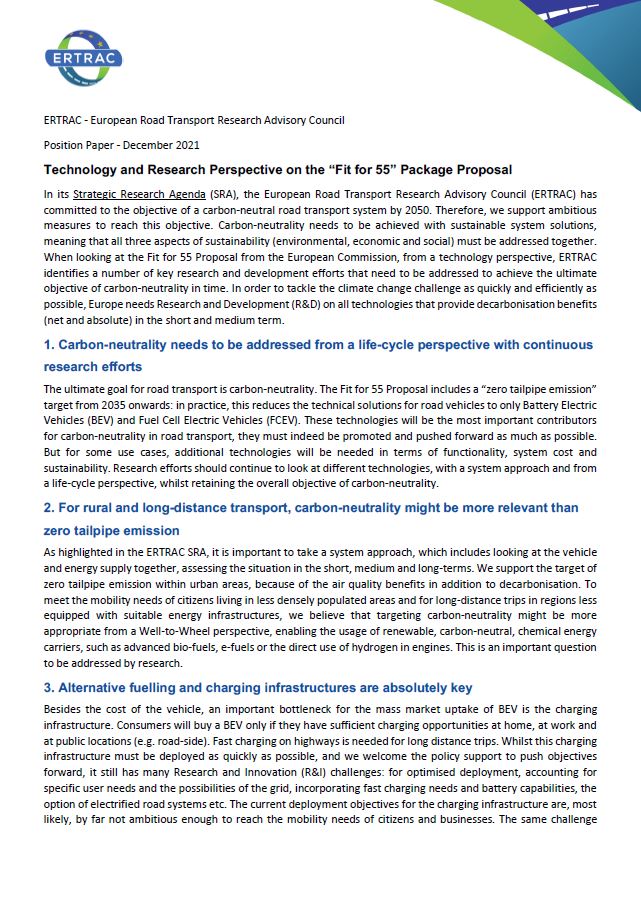
January 10, 2022
ERTRAC – Technology and Research Perspective on the “Fit for 55” Package Proposal
In its Strategic Research Agenda (SRA), the European Road Transport Research Advisory Council (ERTRAC) has committed to the objective of a carbon-neutral road transport system by 2050. Therefore, we s...
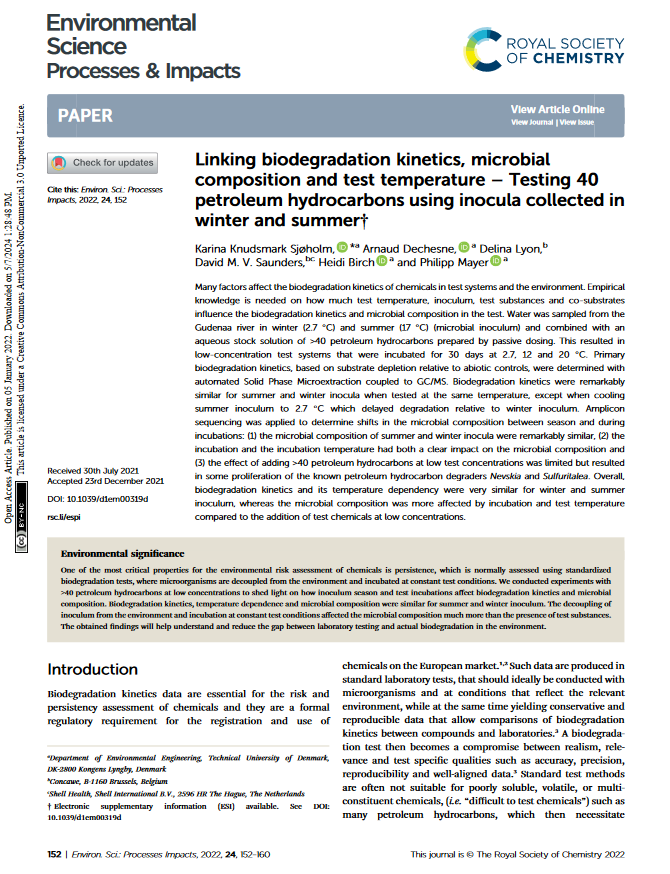
January 5, 2022
Linking biodegradation kinetics, microbial composition and test temperature – Testing 40 petroleum hydrocarbons using inocula collected in winter and summer
Many factors affect the biodegradation kinetics of chemicals in test systems and the environment. Empirical knowledge is needed on how much test temperature, inoculum, test substances and co-substrate...

December 9, 2021
Concawe’s response to the publication and presentation of T&E’s report “Magic green fuels: Why synthetic fuels in cars will not solve Europe’s pollution problems?”
T&E published a report on Monday 6 December, presenting their interpretation of the results of the lab tests they commissioned to IFPEN to measure air pollutant emissions of e-petrol in cars. Conc...
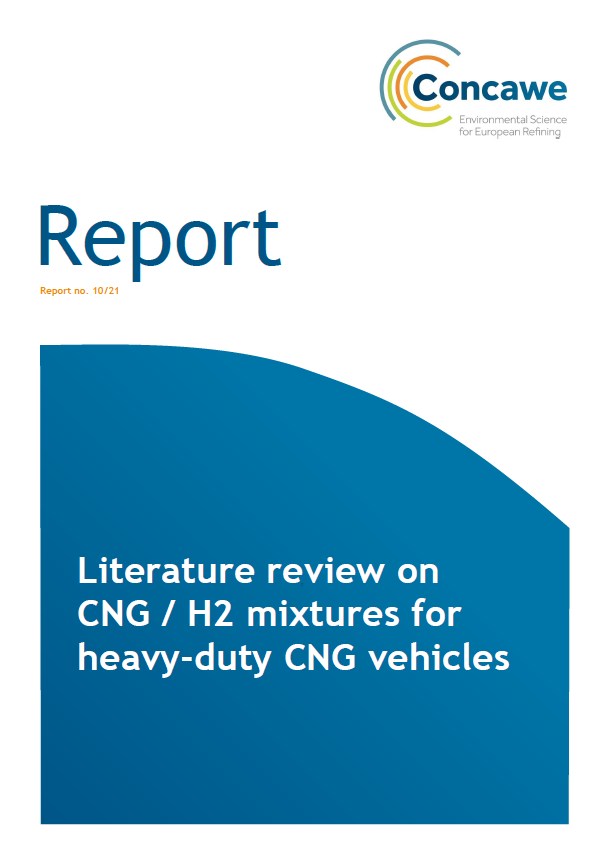
December 7, 2021
Literature review on CNG / H2 mixtures for heavy-duty CNG vehicles
Report no. 10/21: Sustainably produced hydrogen (H2) is seen as a low carbon fuel for transportation. Likewise compressed natural gas (CNG) could reduce CO2 emissions from vehicles, especially if it i...
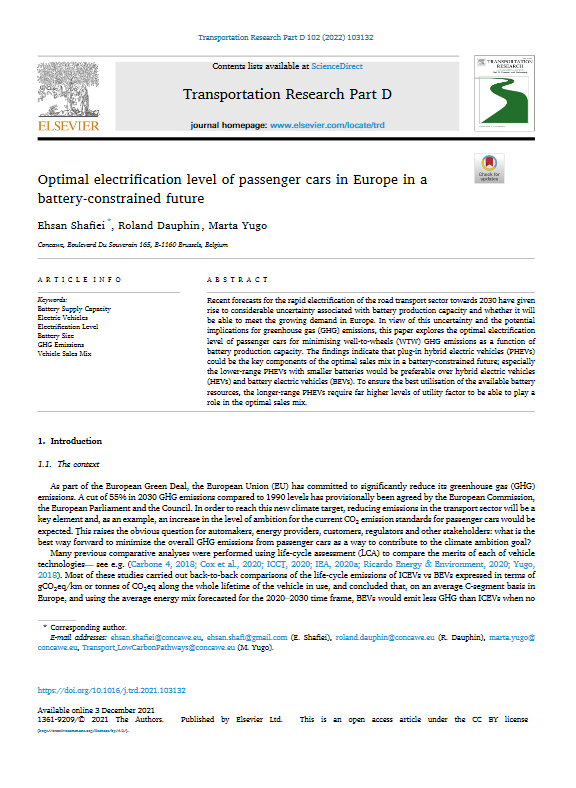
December 3, 2021
Optimal electrification level of passenger cars in Europe in a battery-constrained future
Recent forecasts for the rapid electrification of the road transport sector towards 2030 have given rise to considerable uncertainty associated with battery production capacity and whether it will be...

November 18, 2021
Advanced Emission Controls and Sustainable Renewable Fuels for Low Pollutant and CO2 Emissions on a Diesel Passenger Car
Research efforts into advanced emission control systems led to significant reduction of pollutant emissions of modern internal combustion engines. Sustainable renewable fuels are used to further reduc...
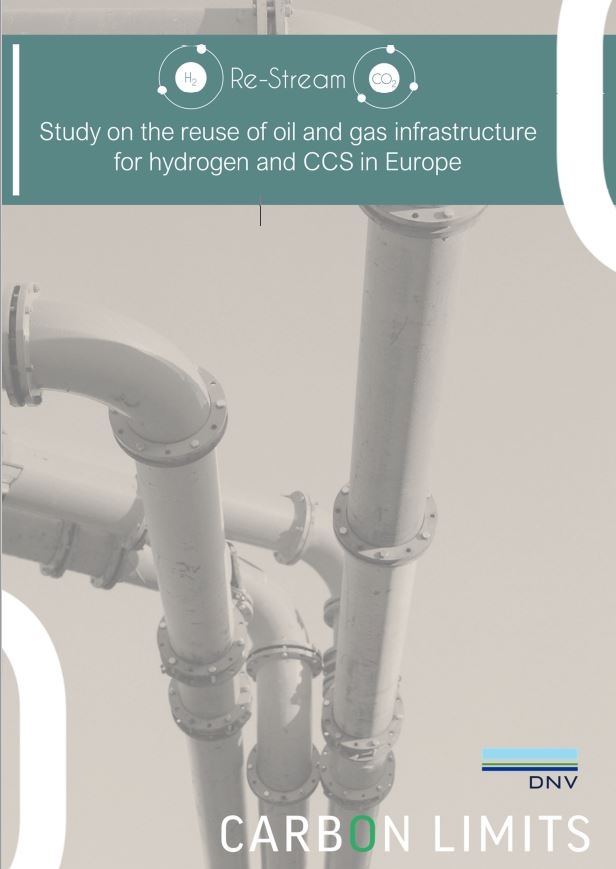
October 28, 2021
Re-Stream: Study on the reuse of oil and gas infrastructure for hydrogen and CCS in Europe
In the European Green Deal, the EU has set itself the ambitious target of achieving climate neutrality by 2050, with an intermediate target of reducing net greenhouse gas emissions by at least 55% by...
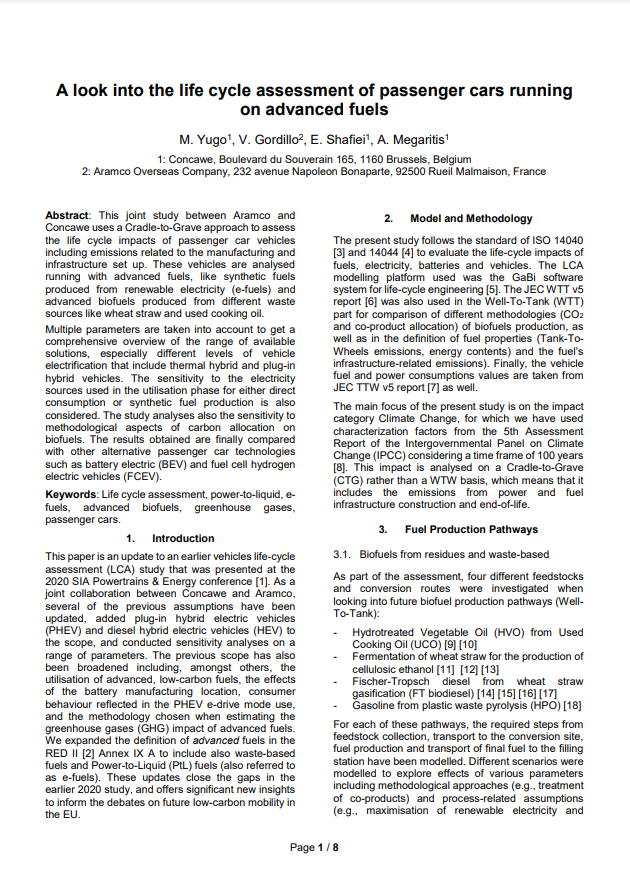
October 20, 2021
LCA of low carbon fuels passenger cars (SIA paper)
This joint study between Aramco and Concawe uses a Cradle-to-Grave approach to assess the life cycle impacts of passenger car vehicles including emissions related to the manufacturing and infrastructu...
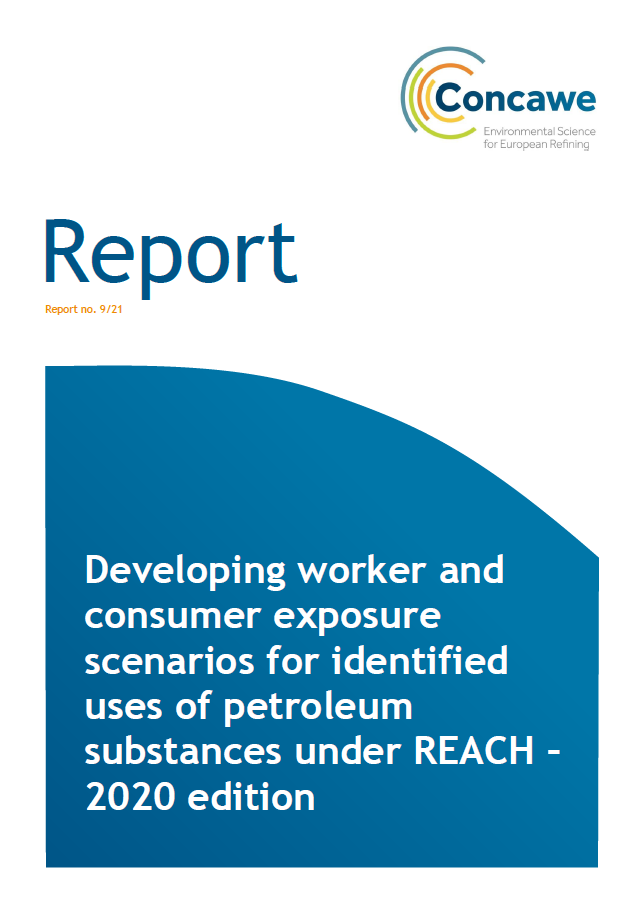
October 14, 2021
Developing worker and consumer exposure scenarios for identified uses of petroleum substances under REACH – 2020 edition
Report no. 9/21: This report sets out the approaches that Concawe has adopted in developing worker and consumer Exposure Scenarios for identified uses of petroleum substances under REACH. Exposure Sce...
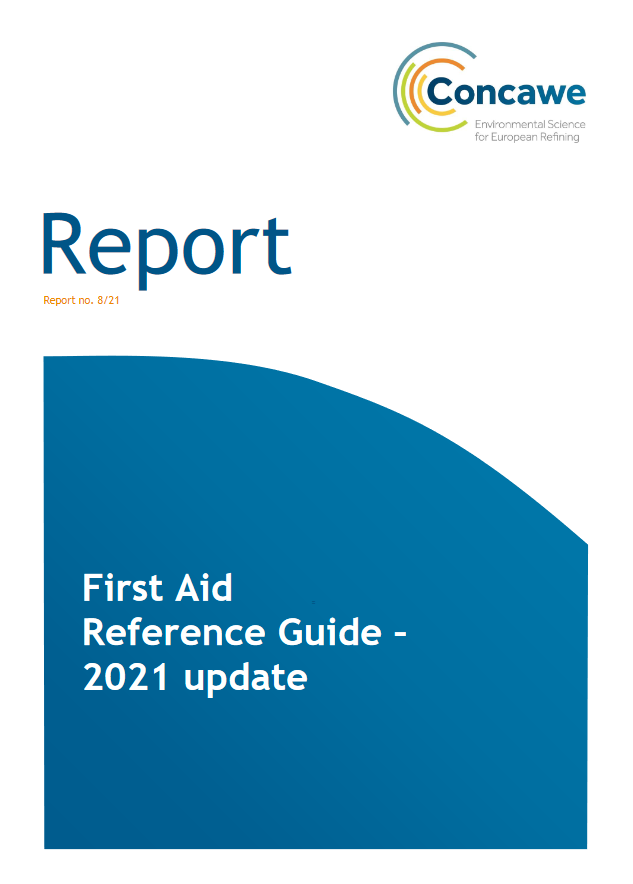
October 12, 2021
First Aid Reference Guide – 2021 update
Report no. 8/21: The “First Aid Reference Guide – 2021 update” is designed to provide additional information on the first aid measures in the event of significant on-site exposures to petroleum...
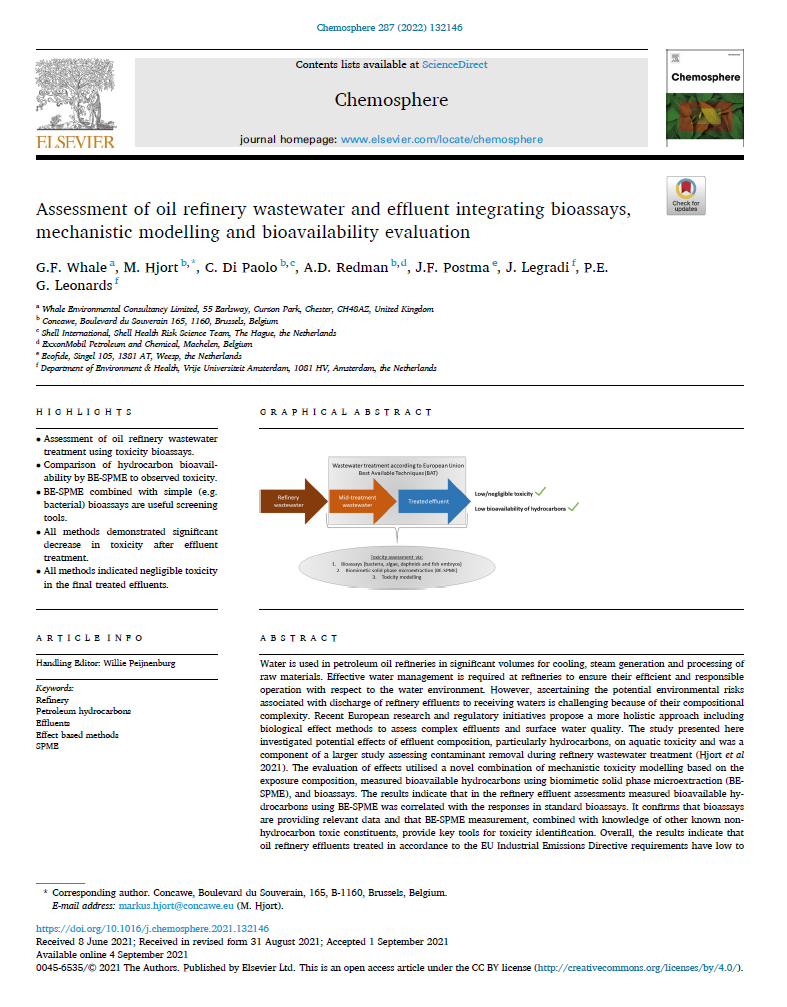
September 4, 2021
Assessment of oil refinery wastewater and effluent integrating bioassays, mechanistic modelling and bioavailability evaluation
Water is used in petroleum oil refineries in significant volumes for cooling, steam generation and processing of raw materials. Effective water management is required at refineries to ensure their e...
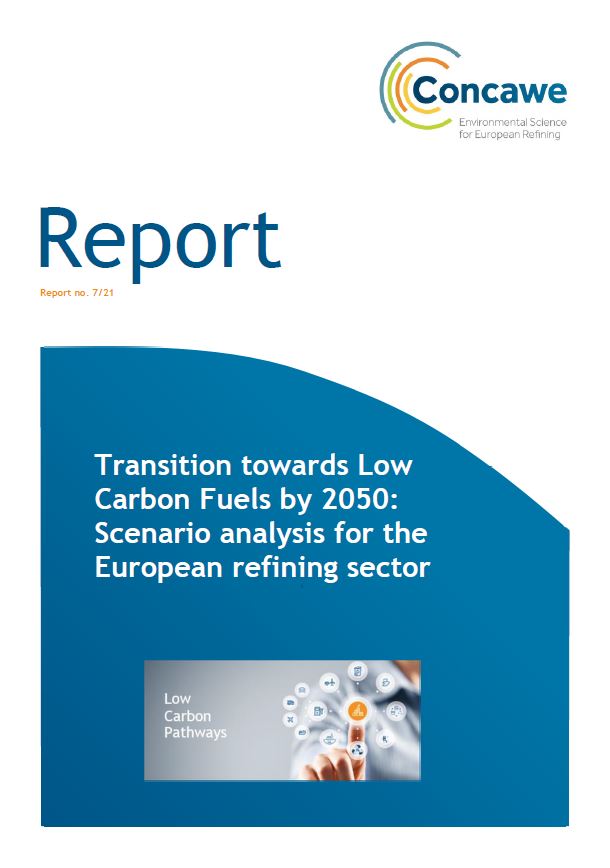
September 2, 2021
Transition towards Low Carbon Fuels by 2050: Scenario analysis for the European refining sector
Report no. 7/21: This report is a theoretical assessment of different potential trajectories (scenarios) for the EU refining industry to contribute to EU climate targets. With a wide focus on road, av...
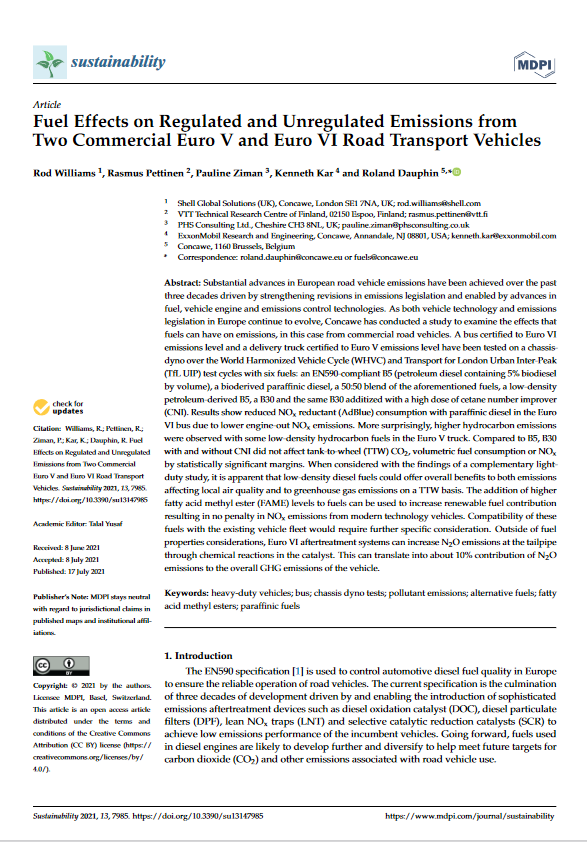
August 26, 2021
Fuel Effects on Regulated and Unregulated Emissions from Two Commercial Euro V and Euro VI Road Transport Vehicles
Substantial advances in European road vehicle emissions have been achieved over the past three decades driven by strengthening revisions in emissions legislation and enabled by advances in fuel, vehic...
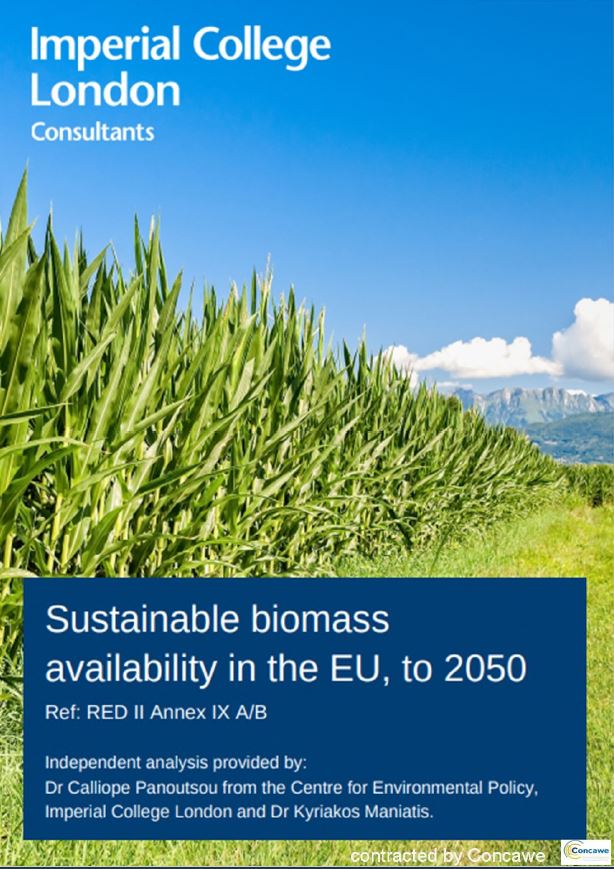
August 24, 2021
Sustainable biomass availability in the EU, to 2050
The aim of this report is to provide an estimation of the sustainable biomass potential availability in the European Union and the UK by 2030 and 2050 and to provide an evaluation of the advanced biof...
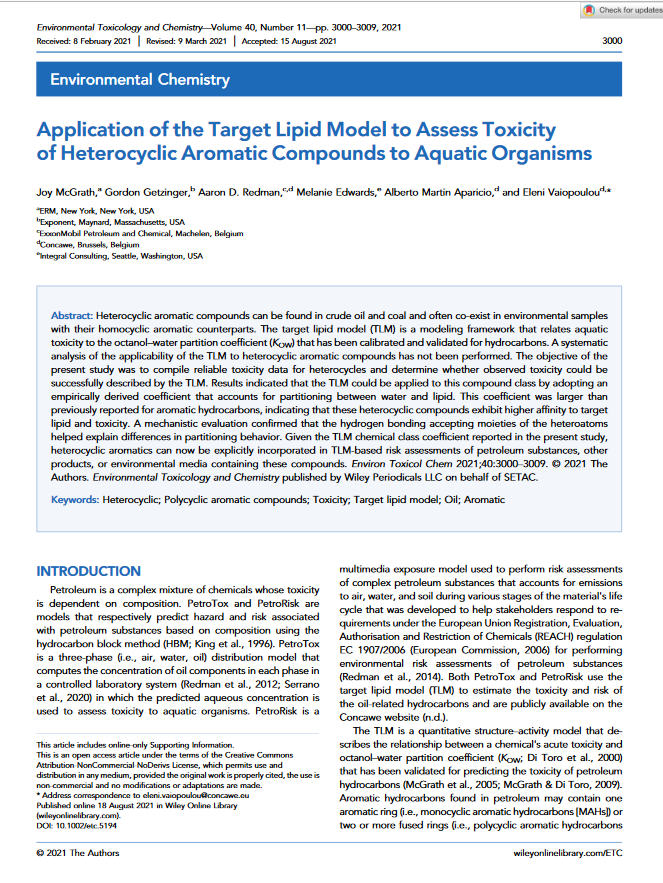
August 15, 2021
Application of the target lipid model to assess toxicity of heterocyclic aromatic compounds to aquatic organisms
Heterocyclic aromatic compounds can be found in crude oil and coal and often co‐exist in environmental samples with their homocyclic aromatic counterparts. The target lipid model (TLM) is a modeling...
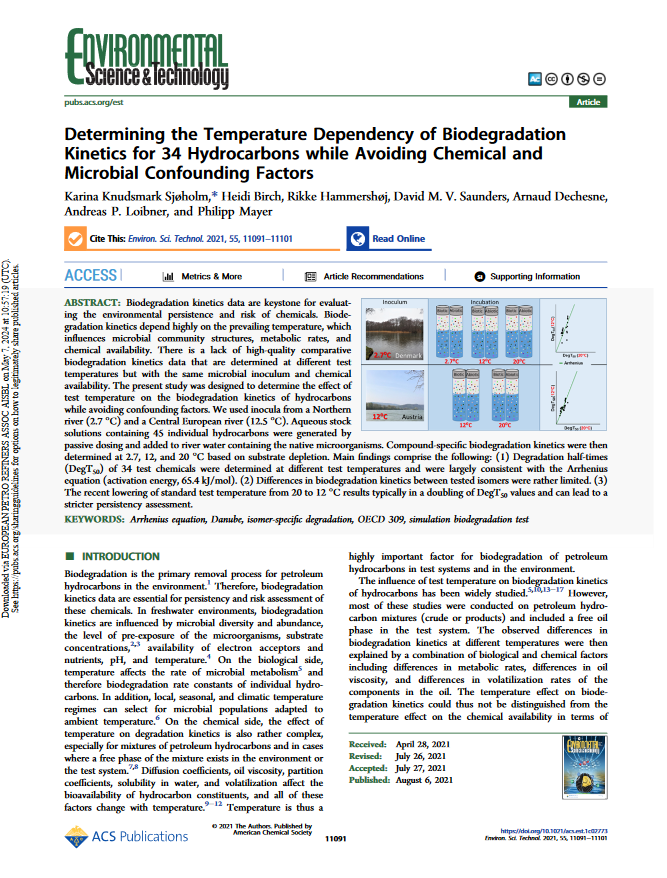
August 6, 2021
Determining the temperature dependency of biodegradation kinetics for 34 Hydrocarbons while avoiding chemical and microbial confounding factors
Biodegradation kinetics data are keystone for evaluating the environmental persistence and risk of chemicals. Biodegradation kinetics depend highly on the prevailing temperature, which influences micr...
Subscribe to publications
You can subscribe here to receive notifications about new Concawe publications (Technical Reports and the Concawe Review)